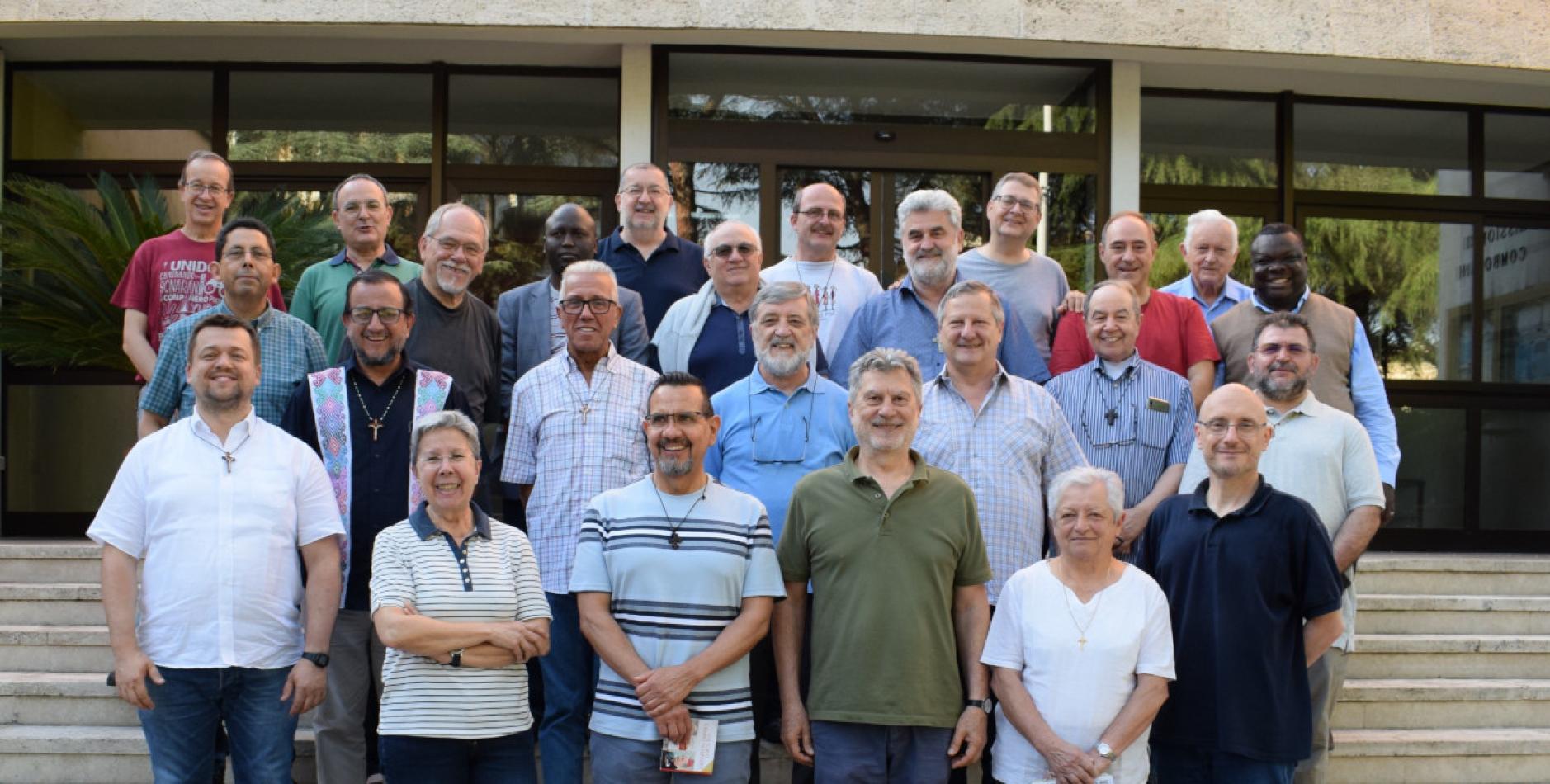The Comboni Missionaries of the Heart of Jesus (MCCJ) from all over Europe celebrated last week the “Mission Assembly in Europe”. These were days of prayer, reflection, sharing of experiences and searching together for ways of a missionary journey in Europe.
Some members of the Comboni Family were invited for this occasion: Maria Luzia Ziliotto, Comboni Secular Missionary, Maria del Prado Fernandez Martin, Comboni Sisters and Alberto de la Portilla representing the Comboni Lay Missionaries.
Here is the final message of the assembly.
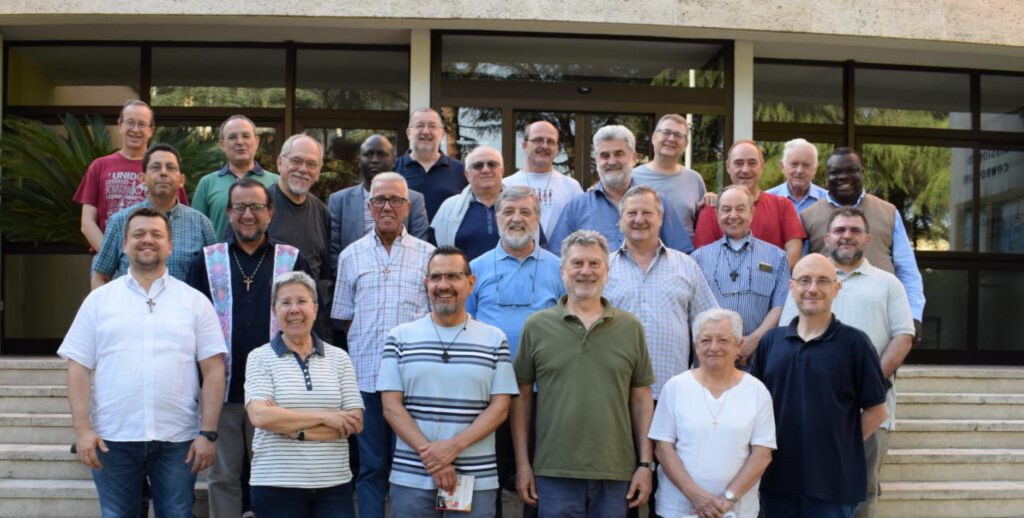
The European Mission Assembly brought together in Rome (June 6-10, 2023) some 30 confreres and representatives of the Comboni Family working in the mission sector. We recalled the previous meeting in Maia in March 2017. The reports of the various circumscriptions, and that of the European Mission Council, allowed us to review the work done during this time.
The meeting with missionary realities present in the diocese of Rome helped us to take suggestions and provocations from the work of others, especially lay people who are committed to the proclamation of the Gospel and human promotion.
The challenges that Europe poses to us today, both social and ecclesial, were explored thanks to the intervention of Serena Nocetti, theologian, Msgr. Roberto Repole, archbishop of Turin, and the reflections of some confreres. We are now more aware of the challenges and changes that the church and European society impose on all of us.
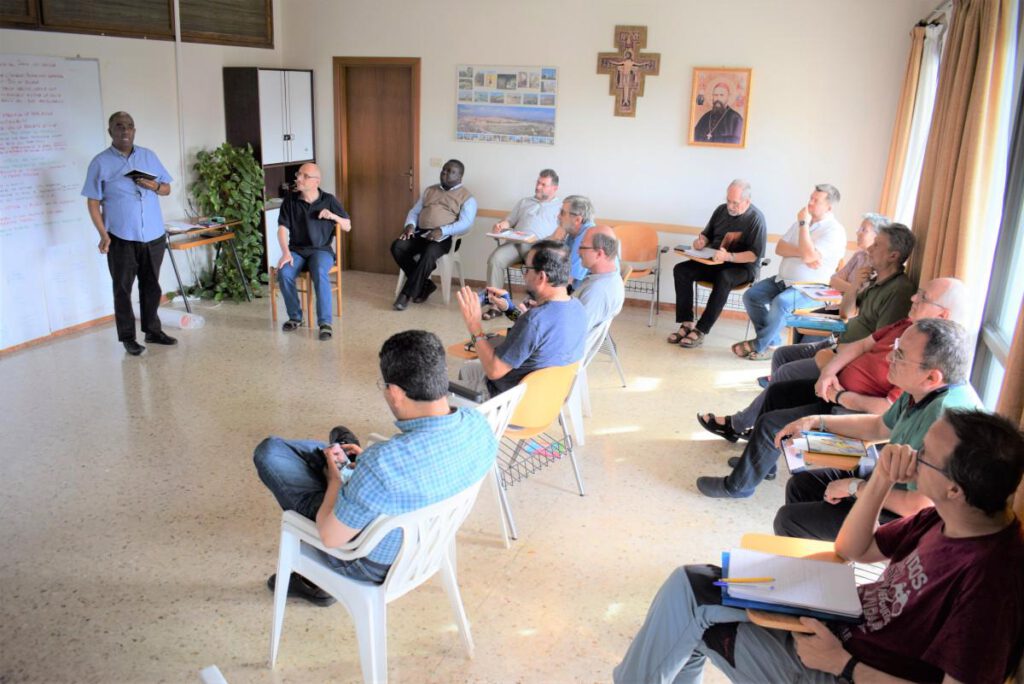
From the group work, and from the sharing of the participants, some instances and proposals emerged that we would like to share with you.
We feel that we need to personally and communally clarify the meaning of mission in Europe today. Reaching a shared vision would help us to transform our mentality, to work in tune with one another, and to stand before the ecclesial community and society with a specific identity. This path of retraining must be the result of ongoing formation aimed at making us better understand the languages and methodology of today’s society.
A particular path opening before us is the synodal one. It is a path that European churches are already embarking on that will enable us to change our readings and perceptions of mission and society. It is a process that requires research, to be done in the light of the Spirit and in communion with others. We are confident that by renewing our identity and rediscovering our mandate we will know how to better present the values of the Kingdom to the people we meet.
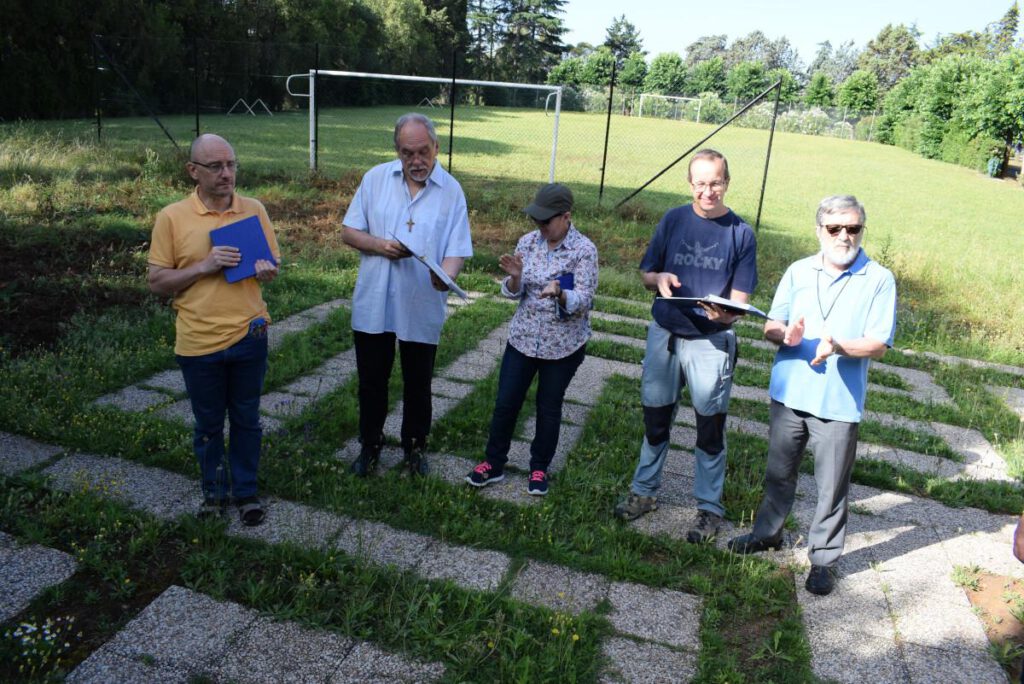
Mission in Europe today demands that we think of our action as collaboration. We are challenged to develop a qualified reflection/vision identified with a shared praxis.
We are also aware that, like any journey, ours needs continuous evaluation. We think that the European Mission Board also has as its task to help us carry out continuous feedback and always stimulate us to veer in the right direction.
We have made some proposals:
- 1. Mass Media Field.
We see the training of competent personnel as a priority for our field. This indicates the selection of personnel, the offering of professional or refresher courses that prepare the person for the service required of him or her. The editors of the various newspapers resume continental meetings, strengthen Southworld.net for continental service and with a view to a European media center.
- 2. Missionary Animation Area.
Organize a European course for mission animators to improve the competence and knowledge of animators (anthropology, critical political-economic analysis, etc.) to give them the necessary tools to competently present the instances of mission, in Europe and other continents.
- 3. Scope Parishes and Rectories
We would like to see the formation in each province of at least one community embedded in a pastoral context (parish/rectorate) that promotes qualified missionary ministry. It should be international, capable of cooperation and fraternal action; according to the values expressed in AC 2022, 16. Such a community could provide for welcoming young people who intend to know and live our charism. The staff should be qualified for missionary service in Europe. This would also make it possible to contribute to the missionary formation of diocesan clergy and laity, helping them to live synodality. Let there be a contact person of the parish sphere in the provincial mission secretariat.
- 4. Scope Collaboration as the Comboni Family.
We note that there are some experiences of collaboration. These should be encouraged and supported. We see it as important to continue the path begun with the FC Social Forum. We wish to form and/or strengthen the national commissions of the Comboni Family.
We favor the annual meeting, in each country, of the provincial councils and the CF coordinating team to organize missionary service and reflection in each circumscription. We also propose an annual meeting of all CF members present in each country to reflect, pray and celebrate, and think about common actions as CF.
- 5. JPIC and Migrant Scopes.
The choice to work in the area of JPIC and alongside migrants is a choice in line with our charism. There is a need to build skills for this work, getting help from trained personnel, not only Combonians, who already work in this field. The person in charge of this be full-time. In 2024, a European meeting of JPICs and migrants should be organized in Castel Volturno, and our provinces should become more engaged in the issues of justice, peace, and commit ourselves to the Laudato si’ platform.
- 6. Mission to Europe.
The European Mission Council, in collaboration with the continent’s ongoing formation, would provide pathways to prepare personnel destined for Europe for active service, giving them the tools to interact with a complex reality, new cultures, intergenerational dynamics, networking with the local church and civil society.
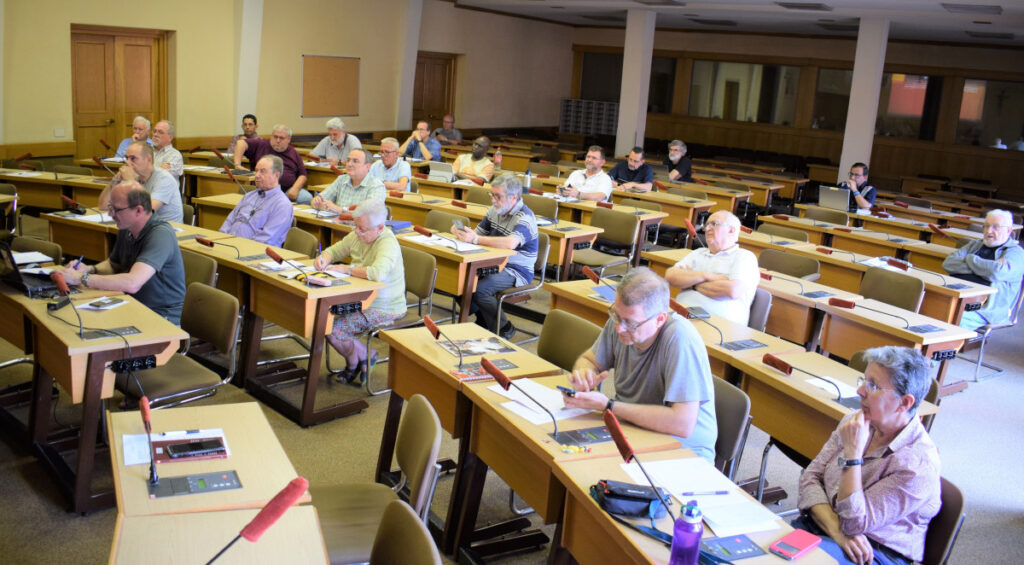
The participants




